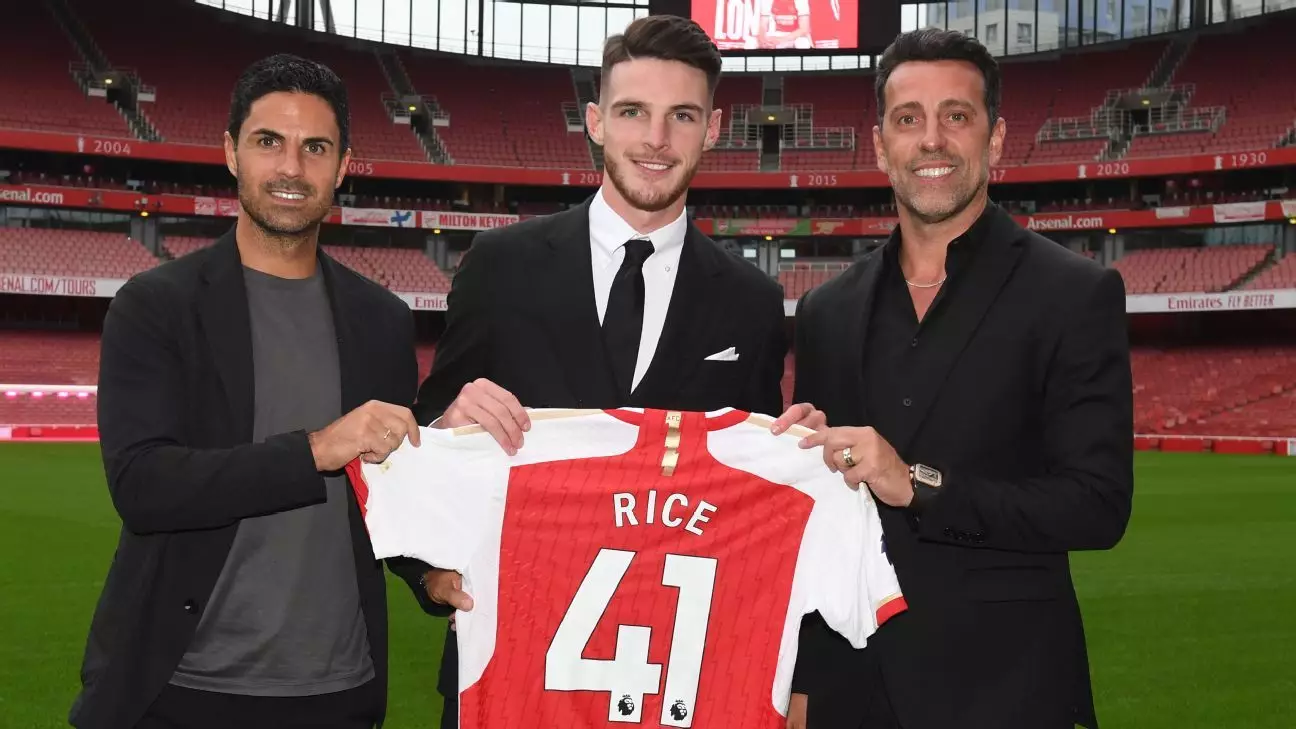Arsenal Football Club recently found itself grappling with unexpected news when Edu Gaspar resigned from his position as sporting director shortly after head coach Mikel Arteta signed a new contract. Having been integral to the rebuilding efforts over the past few years, Edu’s sudden exit leaves fans and analysts questioning the implications for the Gunners. This article delves into Edu’s significance at Arsenal, the reasons behind his departure, and what lies ahead for the club in both team management and strategic vision.
Edu joined Arsenal in 2019, bringing a wealth of experience from his previous role as technical director for the Brazil national team. His appointment was lauded by fans, particularly given his status as a member of the legendary “Invincibles” squad, which clinched the Premier League title in the 2003-04 season without losing a match. However, Edu’s journey was fraught with challenges. Initial transfer decisions drew criticism from supporters who were skeptical of his connections with certain agents and the club’s transfer strategy under his direction.
Yet, he swiftly adjusted his course, leveraging his expertise to orchestrate a comprehensive squad overhaul. Under Arteta’s leadership, the Gunners cut ties with several high-profile players while making astute signings that instilled renewed optimism among the fanbase. Edu’s elevation to sporting director in November 2022 underscored his critical role in reshaping Arsenal’s football operations, marking him as the first person to hold dual positions at the club.
His close partnership with Arteta was not just professional but also personal, characterized by open communication and mutual respect. This chemistry allowed them to restore the club’s core values, while a focus on culture was instrumental in redressing the stagnation that had set in during the latter stages of Arsène Wenger’s tenure.
The circumstances surrounding Edu’s departure have raised eyebrows among Arsenal supporters. Reports suggest he has accepted a lucrative offer to oversee a multiclub sports model that includes prominent European teams. While Edu’s decision can partly be attributed to financial incentives, it is also indicative of a broader ambition to expand his influence across multiple clubs—a prospect that contrasts sharply with the single-club focus he held at Arsenal.
As Arsenal braced for the ramifications of his exit, the club had to confront the loss of a pivotal figure who had garnered respect within the organization. Complaints from the past about his agent relationships had subsided, and the mutual camaraderie between him and Arteta had cultivated a productive working environment. However, internal tensions over certain transfer strategies may linger, such as missed opportunities and failed negotiations that allegedly tested relationships within the club.
Despite these disputes, sources have emphasized that Edu’s resignation was not precipitated by a power struggle. Instead, it appears he was lured away by a role that offers him greater responsibility and the allure of a wider geographic reach.
In the wake of Edu’s departure, Arsenal faces a significant transitional period. The club’s management structure now finds itself in a state of flux as it looks to identify a suitable successor. Jason Ayto, Edu’s assistant, has stepped into an interim role with a commitment to maintain operational continuity during a crucial juncture.
The challenge of replacing someone with Edu’s unique combination of experience, legacy, and rapport will require a careful selection process. Arsenal is traditionally known for appointing individuals with a connection to the club, but the situation may necessitate casting a wider net to ensure they find a candidate with the right skills to navigate the complexities of modern football management.
The impending January transfer window adds an additional layer of urgency to the club’s need for stability in its decision-making. While the current sentiment at Arsenal suggests a reluctance to engage in wild expenditure in the transfer market, the possibility of addressing squad vulnerabilities remains a priority.
Edu Gaspar’s unexpected exit from Arsenal represents both a challenge and an opportunity for the club as it seeks to maintain momentum built over recent seasons. While his contributions to reshaping squad dynamics and club culture are undeniable, the uncertainty surrounding this leadership change creates an environment of trepidation about the future.
Mikel Arteta’s assertion that the club’s vision remains intact is hopeful, but the reality is that a significant void now exists. Whether Arsenal can navigate this transition smoothly or if the club will face difficulties down the line will be critical in determining their fortunes in the coming years. Only time will reveal if this shift is a minor bump in the road or a pivotal moment that could reshape Arsenal’s trajectory in English football.

